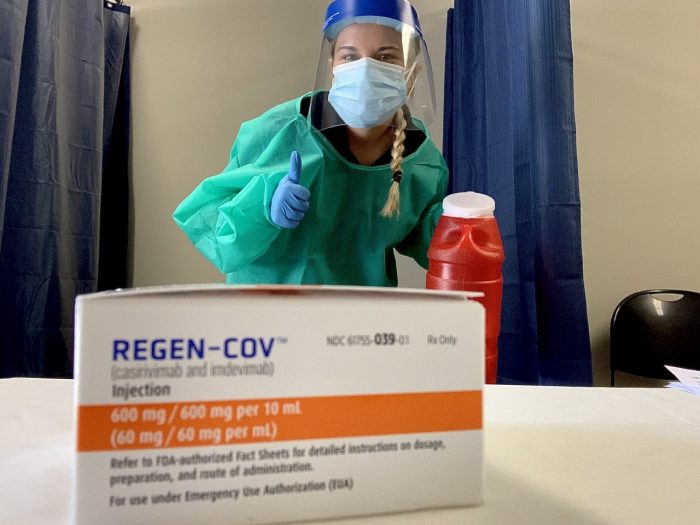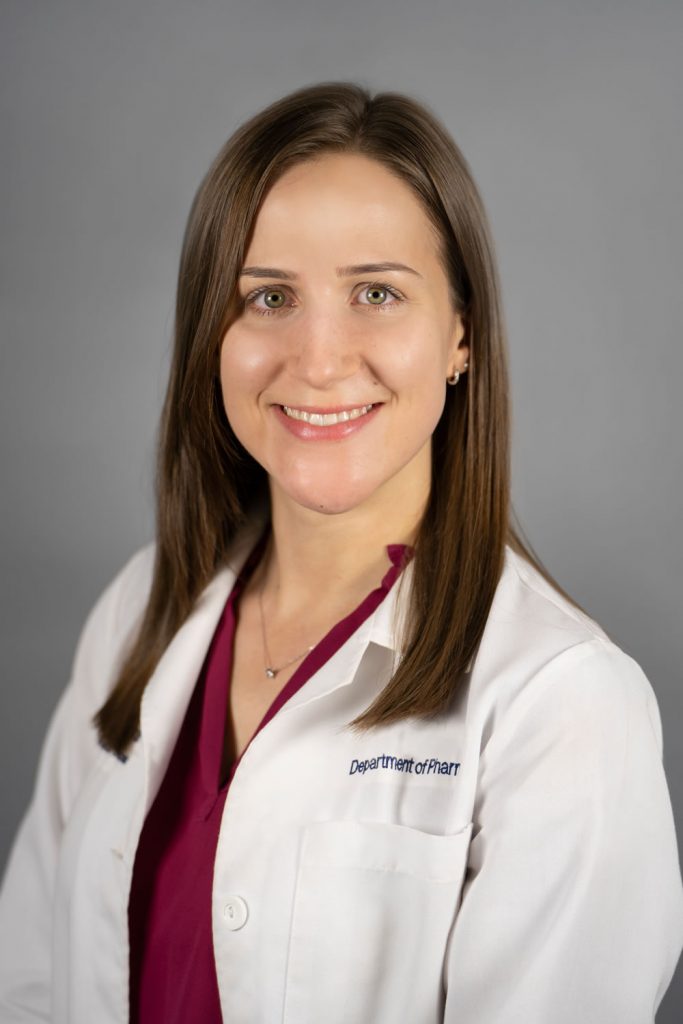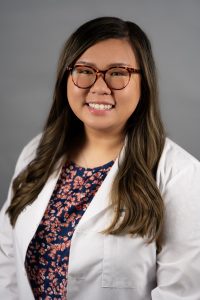
COMMUNITY AND AMBULATORY PHARMACISTS make a world of difference in the lives of patients, and student pharmacists are increasingly considering placements in the community setting, where they can take advantage of professional growth opportunities and uniquely impact patients.
A passion for community pharmacy
"This is a place where I can practice at the top of my pharmacist license, make lasting and meaningful connections with patients, and give back to the community," said Erica Mabry, PharmD, a PGY-1 community-based pharmacy resident at the UNC Eshleman School of Pharmacy in Chapel Hill, and a resident at Eden Drug, an independent pharmacy in the town of Eden, North Carolina, where the population numbers 15,000.
Dr. Mabry's passion for community pharmacy dates back to before she began pharmacy school, when she worked at an outpatient pharmacy, providing patient education and building trusting relationships. It wasn't until her last year of pharmacy school that she realized, "we can be doing so much in the outpatient setting."
That conviction has been borne out in her experiences at Eden Drug, where she began a residency in mid-2021. Since joining the team, Dr. Mabry has worked on a number of projects, helping develop a workflow for screening patients, prescribing, and administering REGEN-COV (an injectable post-exposure prophylactic and treatment for COVID-19), developing a workflow, educational content, and documentation for the dispensing of COVID-19 oral antiviral medications, working on patient medication access projects at the pharmacy and researching ways to improve the wellbeing and work performance of the pharmacy's employees. On top of that, she performs the daily duties of a pharmacist, dispensing medications, and counseling patients.
"I have been able to accomplish so much throughout just six months of residency, and I know there is so much more to come," Dr. Mabry said.
In addition to the opportunities for professional growth, something that attracted Dr. Mabry to a community-based residency was the potential to develop relationships with patients, rather than moving between rotations as is typical in inpatient health system residencies.
At the same time, "while we have set patient appointments in the community setting, we also never know who might walk through the door, so it keeps us on our toes," she noted.
Helping patients optimize therapy
The prospect of cultivating long-term relationships with patients with chronic illnesses attracted Viktoriya Avlasevich, PharmD, a PGY-1 community pharmacy resident at the University of Rochester Medical Center in Rochester, NY, to the community setting.

"Diabetes, for example, is a difficult disease state to manage from a provider and patient perspective, but because pharmacists see patients repeatedly and we can be accessed easily, we can work with the patient to optimize therapy and help them reach their goal," Dr. Avlasevich said.
Outside of her clinical duties, Dr. Avlasevich is involved in several projects, like helping the University of Rochester Specialty Pharmacy – one of the outpatient locations she is doing her residency rotations at – establish a telemedicine service to increase patient access to clinical pharmacists.
She's been bitten by the community pharmacy bug, and after her residency, plans on pursuing a mix of community/ambulatory pharmacy work and teaching, or other academic work.
For graduates considering a community-based pharmacy residency, she suggested speaking with other residents or pharmacists in the specific area of community pharmacy they are interested in, and finding work shadowing opportunities to get a better sense of the day-to-day responsibilities involved in that field.
Another resource for students is ASHP's Section of Community Pharmacy Practitioners, which the organization launched in 2019, recognizing that community and ambulatory pharmacy is an important site of care and a setting where pharmacists can take on advanced roles.
Dr. Mabry echoed the importance of performing due diligence when looking for a community pharmacy residency, saying that community-based residencies can vary in their responsibilities and practice settings, from clinics to traditional chain pharmacies to independent pharmacies.
"All of these residencies have the end goal of moving the practice of pharmacy forward, keeping patients well, and helping you feel confident and comfortable as a new practitioner in the quickly changing world of pharmacy," she noted. "But it's important to explore what you are interested in and make sure the residency aligns with your career goals!"
A specialty pharmacy residency
Amy Duong, PharmD, a PGY-1 community pharmacy resident at the University of Rochester Medical Center at Strong Memorial Hospital in Rochester, NY, chose a community-based pharmacy residency program with an emphasis on ambulatory and specialty pharmacy.

She said it is "extremely rewarding to provide optimal care and management to patients who struggle with unique and life-altering conditions."
"In the specialty setting, pharmacists have the opportunity to educate providers and patients on complex medications and emerging therapies," Dr. Duong explained. "At the same time, a collaborative environment allows pharmacists to learn valuable lessons from providers who are experts within their specialty."
Dr. Duong is creating a business plan with the goal of adding a full-time pharmacist to the new oncology clinic within the University of Rochester Medical Center. She believes the addition will provide greater access to care under one roof, which is particularly important for patients who commute long distances to the clinic.
Reflecting on what led her to a community-based pharmacy residency, Dr. Duong recalled that as a child, she would often help her parents manage their own chronic conditions by translating medical advice and medication instructions to Vietnamese.
"From this experience, I knew I wanted to work in a setting where I could help patients address barriers to safe and optimal health care," she said.
Dr. Duong will be completing a PGY-2 ambulatory care pharmacy residency following the completion of her PGY1. After completing her residency, she wants to pursue board certification in ambulatory care pharmacy and work as a clinical pharmacist embedded within a specialty clinic.
"I would also like to develop collaborative practice agreements wherever I work, because it's a great way of expanding access to care through pharmacy services," she said.
Clearly, with their multitude of opportunities, community-based residencies offer budding pharmacists the chance to hone many skills. As Dr. Mabry reflected, that experience has led to her passion for independent, community pharmacy to "blossom" during the last six months, and she hopes to share her enthusiasm for community pharmacy with other students after her residency.
"This residency has given me the confidence and knowledge to fine-tune my teaching and to help move community pharmacy forward, and I am excited to help current and future pharmacists do the same," Dr. Mabry enthused.








